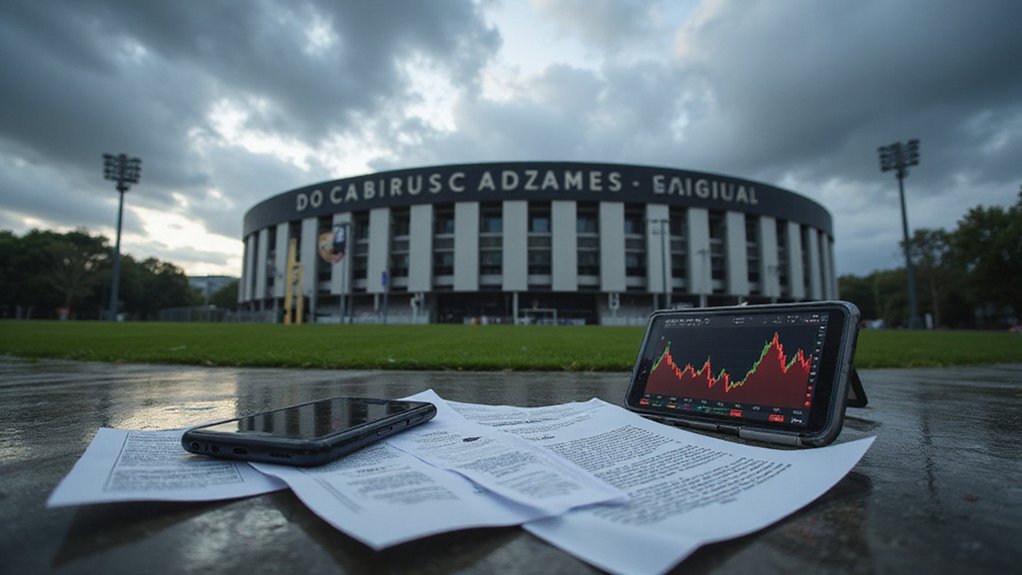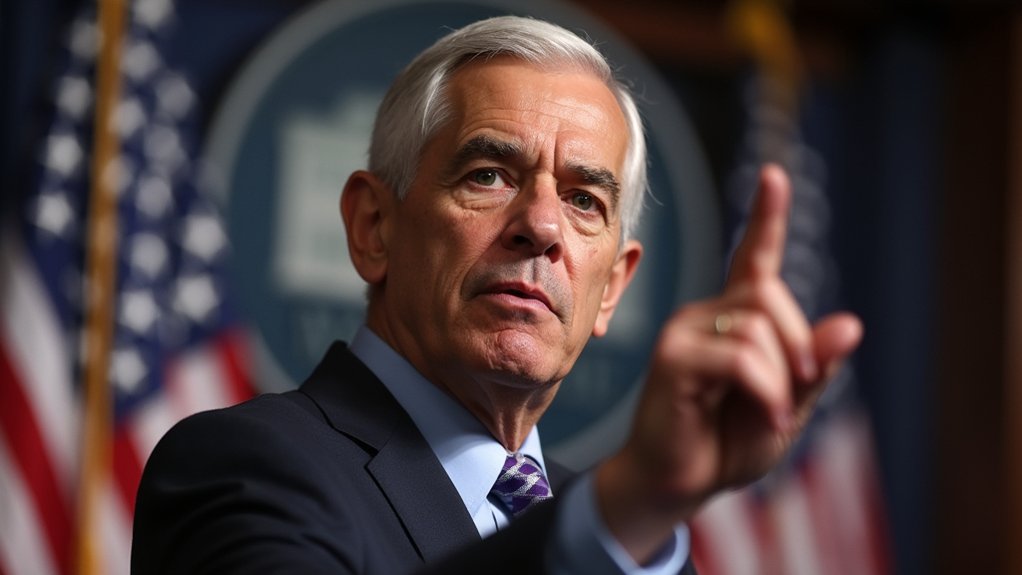Few financial pivots have been as dramatic—or as telling—as the Trump family’s wholesale embrace of cryptocurrency, a transformation that began not from visionary foresight but from the rather more prosaic reality of traditional banks severing their ties with the Trump Organization.
Eric Trump has emerged as the family’s unlikely crypto evangelist, championing Bitcoin price targets that would make even the most bullish maximalists blush—$175,000 by end-2025, with whispers of the mythical million-dollar Bitcoin lurking beyond. Such predictions, delivered with characteristic Trump confidence, reflect either extraordinary market insight or the kind of optimism typically reserved for lottery ticket purchases.
Eric Trump’s $175,000 Bitcoin prediction by 2025 showcases either extraordinary market vision or lottery-ticket-level optimism delivered with signature family confidence.
World Liberty Financial stands as the crown jewel of this digital pivot, achieving a $4.5 billion valuation that speaks to both crypto’s peculiar relationship with celebrity endorsement and genuine institutional appetite for alternative financial products. The WLFI token sales have generated hundreds of millions, while their USD1 stablecoin has carved out meaningful market capitalization—proving that political controversy, rather than deterring investors, might actually enhance crypto market appeal.
The family’s diversification beyond mere token launches into extensive financial infrastructure represents sophisticated understanding of crypto’s institutional potential. Their mining operations, investment vehicles for traditional investors, and publicly traded entities create multiple revenue streams while providing ordinary investors access to digital asset exposure without direct wallet management complexities. This approach eliminates traditional intermediaries by utilizing blockchain-based smart contracts to facilitate transactions without institutional approval.
International expansion into Japan and Hong Kong demonstrates shrewd regulatory arbitrage, positioning operations where evolving frameworks offer clearer compliance pathways than domestic uncertainty. Japan’s stablecoin approvals and Hong Kong’s licensing requirements, while challenging, provide definitive parameters compared to American regulatory ambiguity.
Perhaps most tellingly, this crypto crusade transforms a banking industry rejection into market opportunity—traditional finance’s loss becoming decentralized finance‘s gain. The family’s portfolio now encompasses Bitcoin mining operations alongside various token acquisitions, establishing American Bitcoin in partnership with Hut 8 as a cornerstone of their diversified strategy. The former real estate executive now balances his oversight of 25 Trump Organization property ventures with these ambitious cryptocurrency initiatives. Whether Eric Trump‘s bold predictions materialize remains uncertain, but the strategic pivot from conventional banking relationships toward crypto-native financial products illustrates both necessity-driven innovation and calculated bet on digital asset permanence.
The irony proves delicious: institutions that once distanced themselves from Trump-related ventures now watch as the family builds parallel financial infrastructure that could eventually render traditional banking relationships optional rather than essential.








